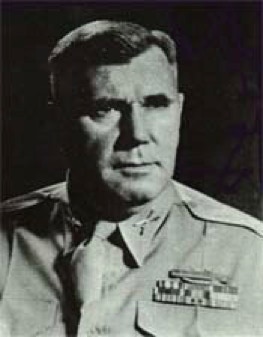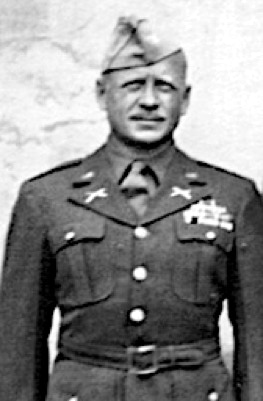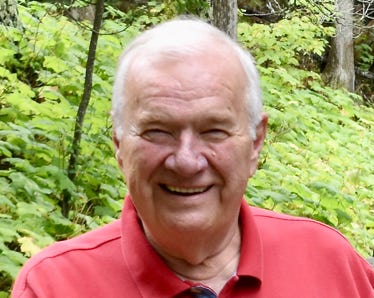DUTY, HONOR, COURAGE, RESILIANCE
Talking Proud: Service & Sacrifice
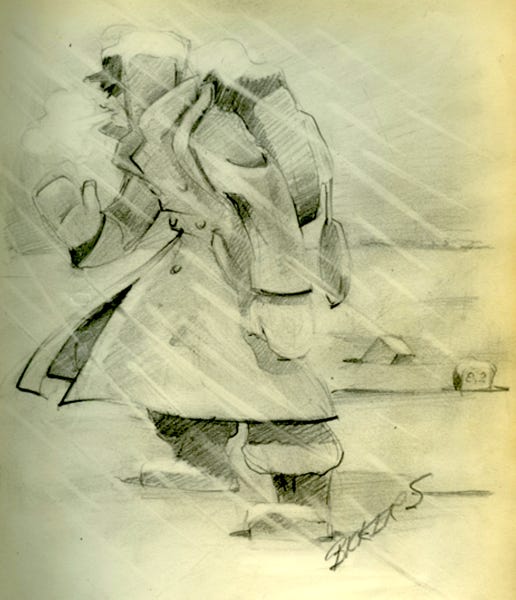
Oflag 64 leadership
American POWs were prisoners of the German Reich, but they were still American military people, in the case of Oflag 64, US Army officers. They were still subject to the Uniform Code of Military Conduct. This is one factor that makes being a POW so difficult.
The Senior Ranking Officer among the POWs in the camp was known as the SRO. Sometimes, the acronym SAO was used for Senior American Officer. Either way, the SRO-SAO had US military authority over the POWs, and the POWs were obliged to follow the SRO's lawful orders.
There were two SROs at Oflag 64 on January 21, 1945. Col. Paul Goode was the SRO in charge of the 1,200 POWs who the Germans marched out on that date. Col. Frederick W. Drury was the SRO for those who remained behind. Both were West Point graduates.
Col. Paul R. "Pop" Goode arrived at Oflag 64 on October 16, 1944. Goode was captured on June 13, 1944, in the Normandy Invasion after landing at Omaha Beach. Goode had commanded the 175th Infantry. The War Department debriefed him on May 17, 1945, when he explained he led D Company of the 175th to clear “a five-mile stretch of woods and occupy two towns” near Carenton, France, a bit west of Normandy. He and his men ran into a 17th SS Panzergrenadier Division battalion. “SS” stood for “Secret State Police.” He said his men had “expended all the machinegun ammunition, all the mortar ammunition and most of the rifle and carbine ammunition,” and then he surrendered. He had, at that time, “28 wounded men and 20 unwounded out of approximately 300.”
While on his way to Oflag 64 in a train boxcar in July 1944 as a POW, Col. Goode felt the wrath of the German army beyond what he experienced on the battlefield. Lt. Brooks Kleber, 359th Infantry, was on board this same train, captured on a reconnaissance patrol behind enemy lines near Normandy. Col. Goode was the senior American on the train. Kleber said some POWs could lift planks from a boxcar floor. When the train stopped, six prisoners managed to get out.
Once the Germans realized six POWs had escaped, they took Col. Goode “out next to the train and dug a shallow grave. Next, they formed a firing squad, and ‘Pop’ gave his West Point ring to one of his fellow officers. The Germans went to the last moment but then placed everyone back on the train.” Kleber commented, “It was very dramatic.”
Kleber said Col. Goode “was a marvelous individual.” Goode arrived at Oflag 64 on October 16, 1944. Lt. Kleber arrived in September 1944. He said there were about 500 POWs there when he arrived, most of whom were captured in North Africa and had been at Oflag 64 for about a year. There was a “shadow staff” organized among the POWs, “a commander, a chief of staff, an S-1 (personnel), S-2 (intelligence), S-3 (operations) and S-4 (logistics).” That was one of Col. Thomas Drake’s requirements.
Col. Drake was the first SRO at Oflag 64. He had been the commander of the 168th Infantry Regiment. He surrendered his forces on February 17, 1943, in Tunisia.
There’s an interesting perspective of Col. Drake online,
“The Kriegies of Oflag 64 were fortunate to have as their Senior American Officer a hard-nosed, well respected, professional soldier who knew how to lead … All POWs were required to shave
and maintain as presentable, soldierly appearance as possible at all times … Early on Colonel Drake made it known that he and his staff would be responsible for the internal operations in the camp and the Germans the external part … Drake would not deal with any German officer of lesser rank which drove many of the guard officers crazy. The Colonel had established control
that would serve as a great benefit to the POWs during their confinement.”
Lt. Herman Littman, 505th Parachute Infantry, has said:
"(Drake) was a real martinet. He made us exercise every day. He got that camp commandant scared of him."
Lt. Colonel John K. Waters, 1st Armor Division, was a West Point graduate and son-in-law to General George Patton. He served as Drake’s executive officer. He described Drake as "a tough hombre" and commented that the German camp commander feared him.
I have seen a report that Colonel Drake was released from Oflag 64 for "stomach ulcers" on July 27, 1944. Legend has it he drove the Germans crazy, and they shipped him out! They were getting ulcers.
After the POWs began their march out of Oflag 64 on January 21, 1945, Col. Frederick W. Drury took on the role of SRO for those POWs who were left behind. He had been the commanding officer of the 3rd Cavalry Group (Mechanized), 3rd Armored Division. He was captured on September 6, 1944, in an area west of Metz, France, not far from the German border. A report by the 3rd Cavalry Group said he accompanied a platoon of Troop A, 3rd Cav Recon Sq, on a reconnaissance mission.
The colonel was in a one-quarter-ton truck and came under small arms and machinegun fire. Drury was seen to take cover with others in a deep ditch. A bit later, the platoon leader came to the ditch but found no one there. Another group went to the area much later. It was forced to leave after coming under heavy fire. Col. Drury was reported as missing in action. He reappeared at Oflag 64 on October 16, 1944.
Colonels typically are to the rear in combat situations, commanding their regiments, orchestrating the movements of their subordinate units, and coordinating with other units and headquarters. However, Colonel Goode and Colonel Drury went out with front-line troops because of special battlefield requirements. In each case, they were captured.
__________
Go to Oflag 64 Long March Out Overview
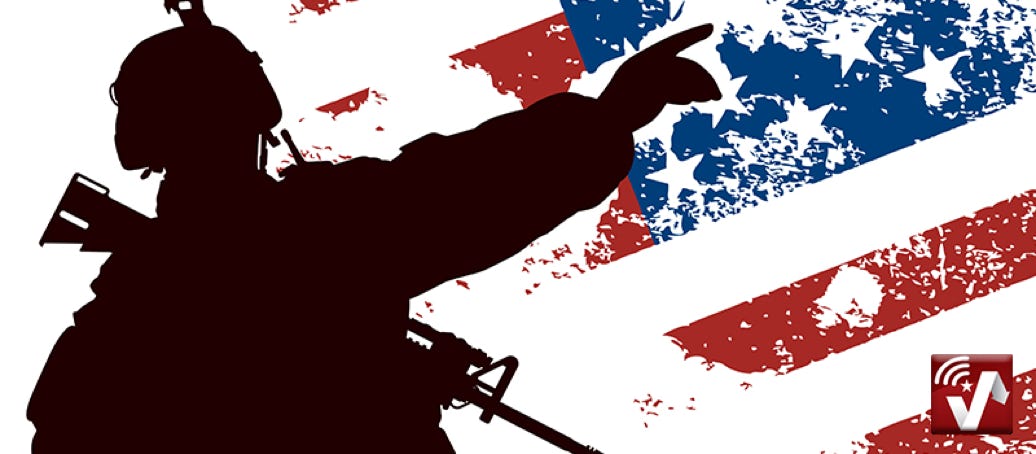
Click to zoom graphic-photo
Table of Contents
- Overview
- Part 1: Sczubin to Ruhnow
- Part 2: Ruhnow to Luckenwalde
- Part 3: Sczubin to Moosburg
Table of Contents
